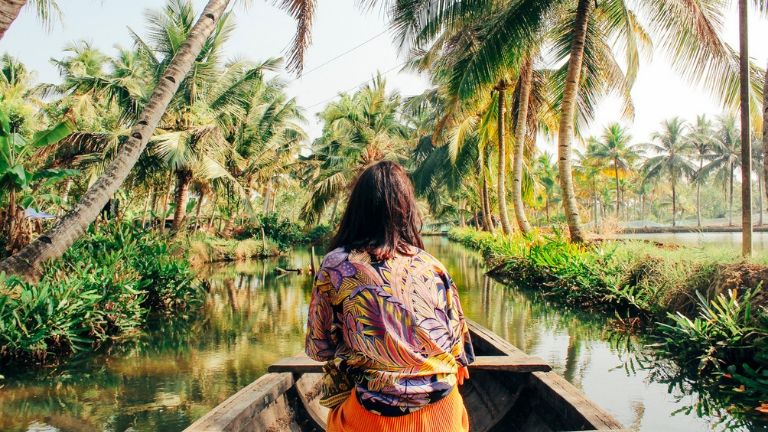Each year, over 40,000 women choose to travel solo. We asked 4 experts for their solo travel secrets so you can stay safe on your adventures
More women than ever are travelling alone with 42,000 of us booking solo trips in 2017. While some of this will have been work, a growing number of us are choosing to travel alone for leisure. And good on us.
Greater financial stability, more single women and maybe the Eat, Pray, Love Effect mean solo women travellers now outnumber men two to one.
But the reality is that solo female travellers are more vulnerable than men and some of the tiny things we do put us at risk, from carrying all our credit cards in our wallets to taking pictures of our boarding passes and posting them to social media.
New female safe travel website, SheTravel was launched last week with a view to providing female travellers with all the information they need to travel in safety.
It’s founded by Anna-Liisa Tampuu, a global risk analyst with Northcott Global Solutions (NGS) a company that specialises in global safety who has visited the world’s most terrifying regions from Syria to Cameroon, assessing security risks.
In the course of her work, Anna-Liisa learned a lot about what it means to travel safe and developed a network of women who also do similarly exciting yet high-risk jobs to provide the inside track on travelling safe, exclusively to SheTravel members.
These include adventurers, conflict management experts and even an ex-army and BBC advisor about their own solo travelling experiences.
Here are just some of their essential tips for travelling safe. For more, log on to SheTravel.
THE EXPLORER: Ella Al-Shamahi @LittleMsFossil
A National Geographic Explorer, palaeoanthropologist – that’s someone who analyses and hunts for human fossils in case you’re wondering – Ella Al-Shamahi goes in regular intrepid adventures in unstable, hostile and disputed territories, where she is often the only woman on the team, as she hunts for ancient fossils.
She is a TV presenter (BBC/PBS/National Geographic) and also just happens to be a stand-up comic.

1.Check the FCO guidelines for where you’re going
The Foreign and Commonwealth Office (FCO) publishes detailed guidelines on their website about the safety levels of countries. The first thing you should do is check this so you know exactly what you’re getting into.
If it’s an area they don’t have any warnings about, great. But if they do have warnings about that country, make sure you have your security protocols in place. If there are possible land mines or kidnappings or arrests, you need to prepare yourself. The FCO website should list all potential dangers.
2. Take a satellite phone
This is a phone that connects to a satellite instead of a phone network so even if you are in the middle of nowhere you will get a signal. They’re easy to find from major cities and though expensive to buy, can also be rented to make them cheaper.
If you’re wandering off the beaten track, and haven’t got a cell signal, it can be a nightmare if something happens – I would highly recommend one.
3. Trust your instincts
If something feels dodgy, don’t go there. It doesn’t mean it’s not safe, but trusting your instinct is important. I have always listened to mine and have a judgement call I will always make wherever I am.
Some people just feel shady, or like they have ulterior motives. Sometimes it’s much more straightforward, with a noise in the sky that doesn’t feel right, or a lot of people running somewhere near you. Keep connected to both subtle and obvious dangers.
If something feels dodgy, don’t go there.
So, if something suddenly doesn’t feel right, take a minute to observe, watch and listen to what’s going on and then trust the gut feeling you’re getting about it.
5. Blend in with the crowd
If you don’t need to stick out like a sore thumb, don’t. Think about the way you dress, the way you talk, how loud you’re being.
There are places I’ve worked where there is a real risk of kidnapping or robbery, so I have learned to walk more like a local woman.
If I am in the north of Yemen, for example, I will cover up with the full burqa and cover up my face and I will walk more like a local woman. Adventurous Western women walk in a striding sort of style, like we own the place but often in Islamic countries people – both men and women – will walk slower with smaller steps.
It doesn’t matter if you’re in Spain or in Iran, observe how others are behaving and copy it a little more so you don’t draw unwanted attention.
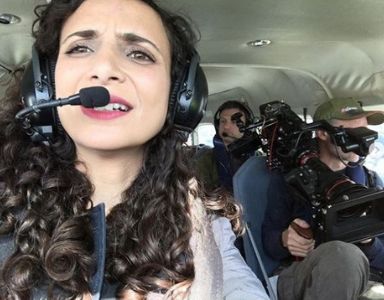
6. Have a check-in system with loved ones – and a good fixer
Tell people where you are and have a system for that. It could be that your family or a friend are expecting you to check in at a certain time with them everyday.
People outside need to know when to panic and you need to give them the information such as where you are and when.
In every area you’re going to, you need to always know who you can call if something happens. For example, you need to make sure that one or two people know where you’re going and that if you don’t check in at a certain time, they need to know who they can call.
Or also, who I should contact if something goes wrong. It could be the British Embassy or a work colleague that is somewhere else or a local fixer that you have lined up.
On a holiday you wouldn’t have a local fixer, but if you’re travelling somewhere dangerous for work it’s essential to have a local fixer you can trust that can help you get out of a situation, connect you with the right people and tell you where things are.
The main reason in eight years nothing has happened to me is that I have always had really good fixers.
THE PEACEKEEPER: Tracey Livingston Howard @tracey_Liv
Tracey Livingston Howard is an expert in conflict management and managing change, who coaches entrepreneurs and leaders and trains teams across the United States, Europe and the Middle East, with her most recent project in Rawabi City, Palestine.
She has a Masters in Public Policy from American University and is the founder of TraceyLiv Ltd. Tracey lives in Wimbledon with her husband and 8-week old son.
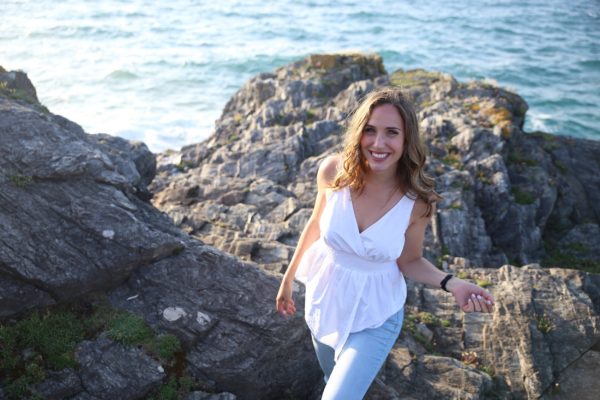
7. You can’t change the world by taking an unsafe risk
I have felt most afraid in Belize in South America, a beautiful country only recently liberated. But that is because I went running, in shorts and a T-shirt for a couple of miles, no phone, I didn’t know what neighbourhood I was in.
In hindsight it was the stupidest thing I could do, but I remember at the time feeling very empowered, like this should be normal, that women should be able to run and run anywhere.
I had this idea that this needs to change so I went and did it. But in hindsight I realised it’s not my role to put myself out there and take what is an unsafe risk just to prove a point; it wasn’t empowered it was just really dumb. I didn’t know where I was, I didn’t have a phone, I barely knew how to get back. It was stupid.
8. Do your homework about the neighbourhood
In any country there are places where I wouldn’t run, but I would do my homework first about the various routes and neighbourhoods where I would be running, whether they’re safe or no-go zones. Most people don’t have this information until they’re actually local.
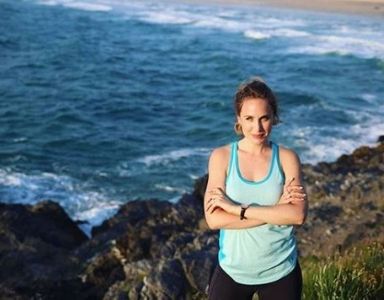
9. Learn the basics of conflict management
The US Institute of conflict management has a great quote: ‘Conflict is neither good nor bad, it’s completely natural but how we behave will create positive or negative outcomes for the situation.’
When I was travelling in Ireland I was by myself at the pub and one of the guys was into me and I wasn’t interested but was being nice anyway, and he attached himself to me. I said I was going home, he offered to walk me home, which I didn’t want.
So, at first I said ‘Oh I prefer to walk by myself.’ And he said, ‘Oh it’s not safe let me walk you home.’ I didn’t know his intentions, they could have been to genuinely keep me safe but I could have ended up with a sticky situation and him putting a move on me.’
He kept insisting, so I then said ‘I have to go to the bathroom.’ I went into the loo, found another door, and left and went back to my hotel.
Conflict is really about getting your needs met without escalating the situation.
In conflict style, I was being very assertive by saying ‘No thank you,’ to try and get my needs met. When I did that he didn’t listen to me, I had to come up with something else to get my needs met, which was to get home safely without him. So I legged it out of there. I still often wonder how long he stood there. But that is a typical example of the fact that there is no one size fits all style of conflict management. Sometimes you can negotiate your way out, sometimes you have to just get out of there.
Conflict is really about getting your needs met without escalating the situation. Leaving out the back door was a way of getting my needs met without angering the guy. It’s the reason I run conflict management workshops regularly. The things I cover are useful at work, in relationships and in navigating tricky situations when travelling alone.
To find out more about Tracey’s workshops, check out her website.
10. Know the safe word where you are
If you’re out somewhere and something isn’t feeling right, or a date or random guy is being creepy there are often posters in the toilets that provide a safe word such as ‘Hi I’m Angela’ or ‘Theresa’. The bar staff know that a woman using these words is code indicating that she is feeling unsafe and they will call her a cab. The name differs country to country but will usually be listed on the posters in the loos.
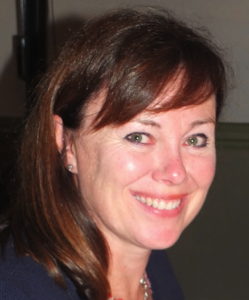 THE SAFETY EXPERT: Caroline Neil
THE SAFETY EXPERT: Caroline Neil
Caroline Neil served in the UK military for 13 years, before becoming a security advisor to the BBC and other media organisations, helping their journalists navigate war zones and other high-risk environments.
She has worked in Central and South America, Africa and the Middle East and the Former Soviet Union.
More recently she has worked in Iraq (and Kurdistan), Mali, Tunisia, Ivory Coast, Nigeria, Oman, Pakistan, Lebanon and Mexico.
11. Don’t leave anything out on display that you don’t want stolen
In a big hotel you can have up to seven people going through your room such as cleaners, security and so on. If you leave valuables or your passport out, it’s temptation so hide everything.
Women can be naïve about dangers – but just because it hasn’t happened to you, doesn’t mean it won’t happen.
12. Lock up your stuff
Use a travel safe lock which is a lock attached to a cable that can be fed through all your bags – they’re essential for travelling in places like Africa to ensure your bags are kept together and can’t be swiped.
13. Sort out your car beforehand
You will be tired and a little overwhelmed when you get to the airport of a new place but make sure you don’t take an Uber or get into any vehicle where the driver is offering a cheap ride.
Women can be naïve about dangers – but just because it hasn’t happened, doesn’t mean it won’t happen.
The ideal is to get your hotel to book a car to pick you up or to take an official taxi – this is really important as lone females and unofficial taxis can often be a dangerous mix.
I don’t take any Ubers in any countries and only take them in London during the day – I am not an Uber fan from a safety perspective.
14. Bring your own tampons
Many female solo travellers don’t realise that a lot of Middle Eastern and African countries don’t have tampons available, only panty pads. So bring your own.
Likewise, things like thrush cream and thrush pessaries or medications for cystitis should be brought with you because in many countries it can be impossible to get such pharmaceuticals specifically for women.
Also, have a first aid kit and medical pack with basic medicines such as pain killers and a torch – you need those sensible sorts of things for emergencies, but most of us don’t think to take them.
THE VISIONARY: Anna-Liisa Tampuu @annaliisatampuu
As the founder of SheTravel and head of risk analysis at Northcott Global Solutions, where she helps companies identify risks that could impact their travellers and operations, Anna-Liisa Tampuu has encountered more than her fair share of risky situations in the line of duty.
International relations and security graduate and one-time trainee with NATO HQ Counter-Terrorism Section, Tampuu also volunteered for Victim Support, where she trained in sexual violence prevention working with young victims, antisocial behaviour and bereavment by homicide.
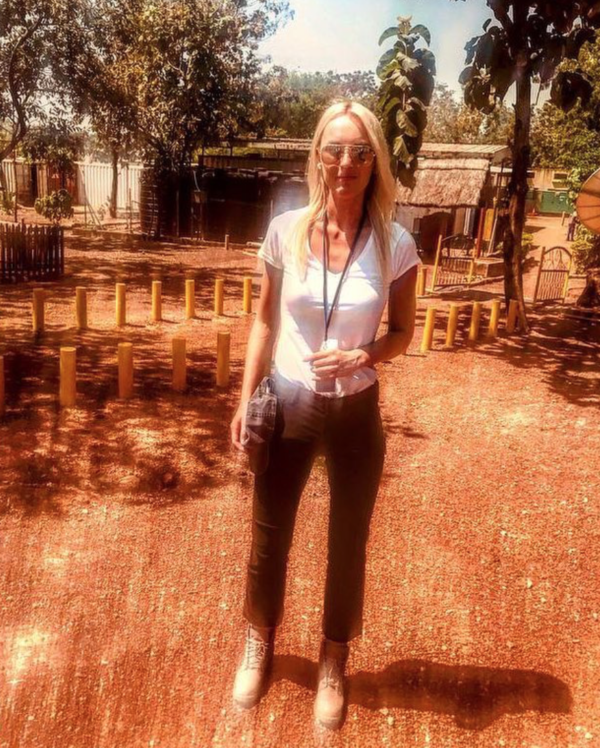
15. Get educated on safety for female travellers
My new website SheTravel was inspired out of two things: I had had some terrible travelling experiences of harassment and dangerous situations during 2017.
I also realised that the company I work for, Northcott Global Solutions (a global security company) runs female travel safety workshops for companies and that that information wasn’t readily available anywhere for women; despite it being really necessary.
I wanted to bring that community together with female travellers who wanted to reach out to those in the know on travel safety and also to other female travellers.
SheTravel is a members only, closed community website which delivers up-to-the-minute travel safety information from security and travel experts. I believe it’s an important resource that will encourage and empower women to travel both bravely and safely.
16. Research the country you’re going to
This will include how women are perceived, and what to wear. Is it a conservative country? Should I cover my head or even face? Find this all out before you go.
For example, in Western Africa, my training has taught me to always look modest, not flash any jewellery or show any cleavage or short trousers as this is disrespectful to their culture and traditions.
17. Leave your itinerary with a trusted contact
Find someone you trust back home such as family or a friend who knows where you’re going and when, so if anything happens they will be able to react. See point 19 for more.
18. Arrive before it gets dark
When you’re travelling to a new place, make your arrival time during daylight. That way you can see where you’re going and it’s generally safer during the day.

19. If you feel uncomfortable in a taxi, do this
I have had some terrible experiences in taxis. If you’re feeling uncomfortable about a taxi driver, make a pretend phone call to a friend and say, ‘Oh hi, I’m arriving at X time, looking forward to seeing you.’
That will give the impression that somebody is waiting for you and knows you’re coming to where you’re driving to. It’s a great deterrent.
20. Know the main checkpoints at your destination
Before I go to a new place, I always check the main locations I will be using and try and get a feel for where they are in comparison to where I am staying.
Know where the airport is roughly in comparison to the hotel, and if you’re attending specific events or shopping in certain areas make sure you research the area and how close or far it is from where you are staying.
Even though you won’t necessarily know how to get to these places, you will know the general vicinity and distance. You can also check the distance and time and then follow along on your Google Maps so you know you’re going in the right direction.
21. Don’t post your boarding pass to social media!
We often see women posting pictures of their boarding passes or passports on social media and that’s really unsafe.
The passport contains all your details which means people can steal your identity. And, your boarding card alerts people that you are away from home, the route you’re going and your whereabouts.
Morever, never, ever tag your location whilst you’re on holidays because it means everyone that can see your profile knows where you are – that’s very dangerous.
It’s safest to wait until you’re back from your holidays before you post pictures and details about your trip and where you went.
More information: Shetravel.co.uk
More Healthista Content:
7 signs of vitamin deficiency ruining your looks
‘I was addicted to painkillers for nine years’
11 time management tips that will make you happier
5 celebrities you didn’t know had anxiety
Like this article? Sign up to our newsletter to get more articles like this delivered straight to your inbox.



